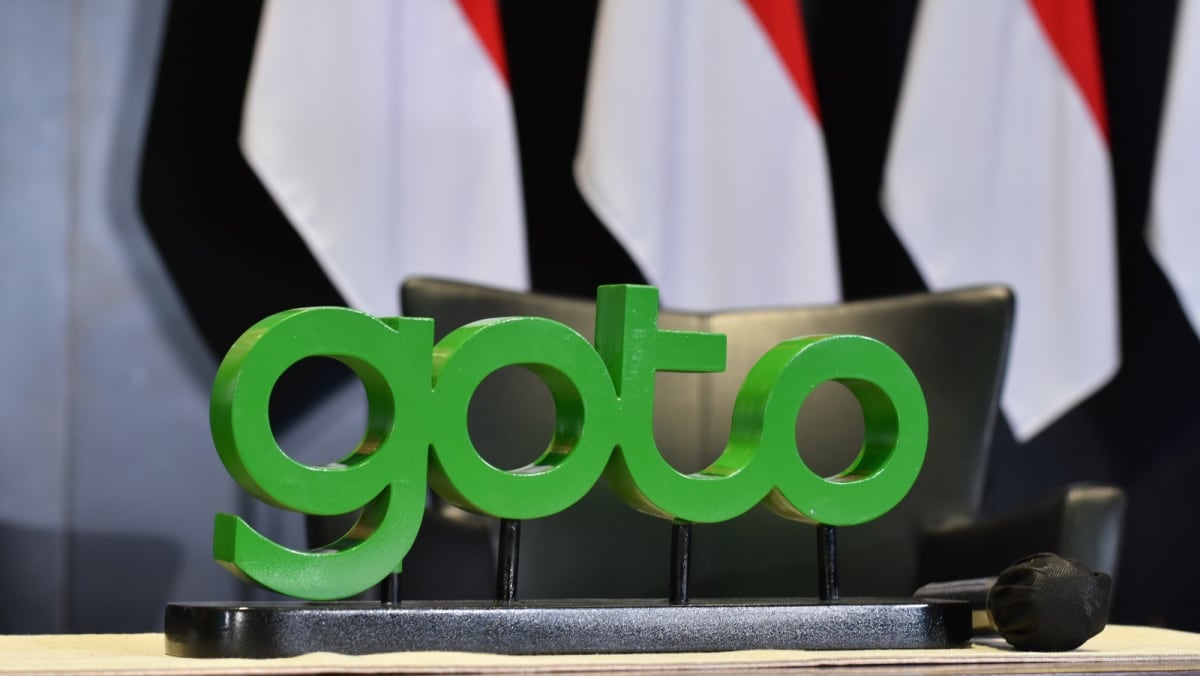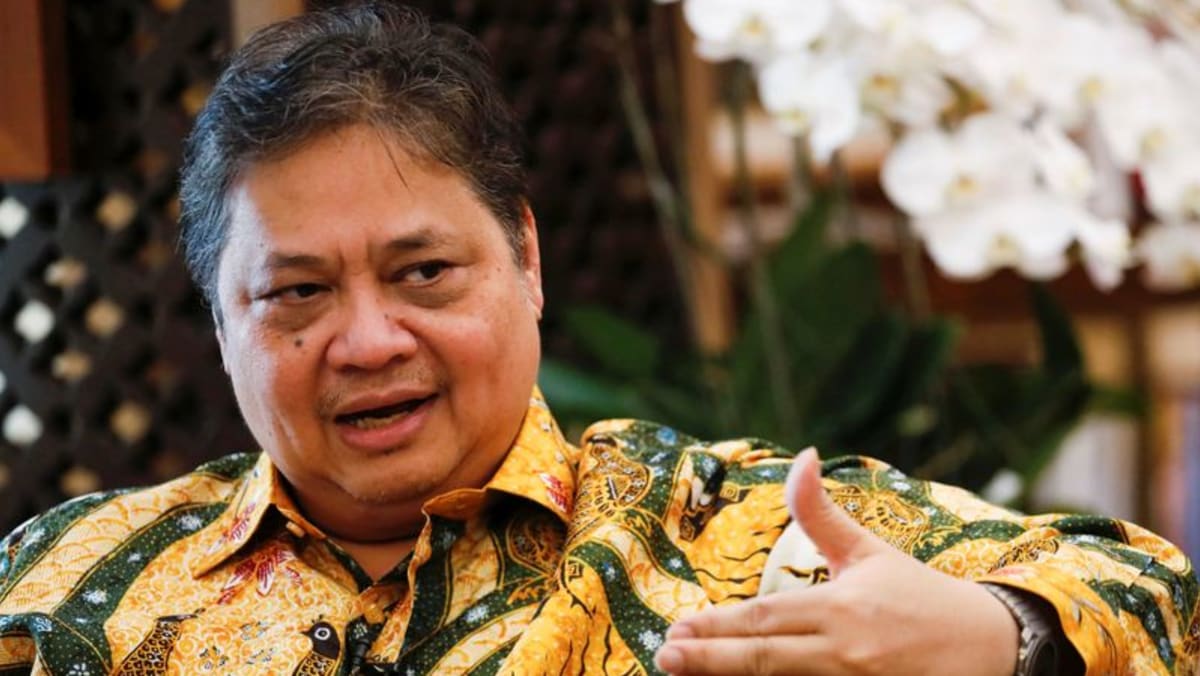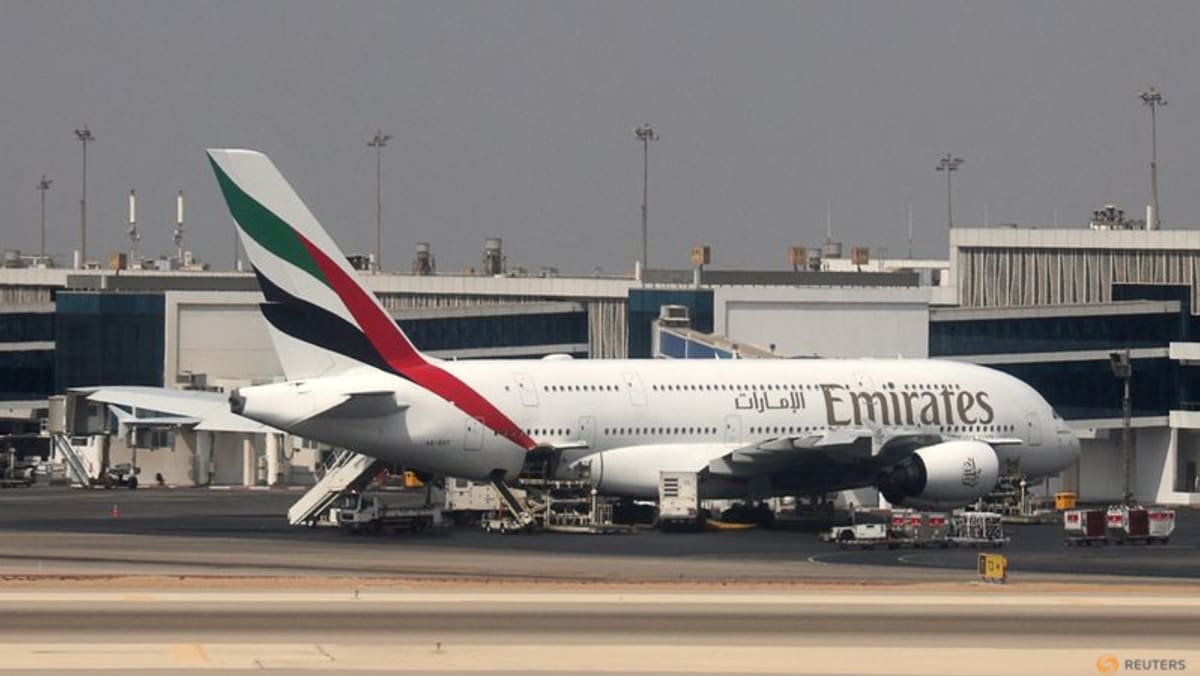Malaysia will continue negotiations with the US on a lower tariff rate despite being the only Southeast Asian country to face an opposite outcome based on US President Donald Trump’s latest announcement.
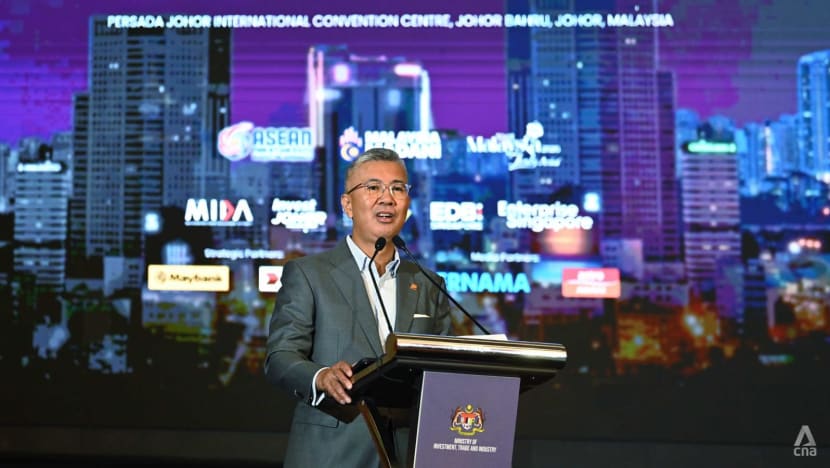
Malaysia's Minister of Investment, Trade & Industry, Tengku Zafrul Tengku Abdul Aziz delivering his speech at the Johor-Singapore Special Economic Zone (JS-SEZ) Joint Business and Investment Forum at Persada Johor International Convention Centre in Johor Bahru on Apr 21, 2025. (Photo: CNA/Zamzahuri Abas)
New: You can now listen to articles. 
This audio is generated by an AI tool.
09 Jul 2025 07:08PM (Updated: 09 Jul 2025 08:35PM)
KUALA LUMPUR: Malaysia has sought to defend its efforts in negotiating a lower United States tariff rate despite being the only Southeast Asian country to face an opposite outcome based on US President Donald Trump’s latest announcement.
Speaking at a press conference on Wednesday (Jul 9), Malaysia’s Minister of Investment, Trade and Industry Tengku Zafrul Abdul Aziz said that in multiple rounds of negotiations with Washington, Putrajaya “stood firm” and did not compromise on what he described as “red lines” or issues of national interest.
He however added that he is still “optimistic” of a favourable result ahead of a new Aug 1 deadline for negotiations.
Malaysia is now staring at a slightly higher US tariff rate of 25 per cent - up from 24 per cent.
On why Malaysia appeared to be singled out among Southeast Asian countries, analysts told CNA it was “unrealistic” to expect any favourable outcome from US tariff negotiations anyway, and that the Trump administration does not seem to have “any rationale or reason” for increasing its tariff rate on Malaysia.
US Secretary of State Marco Rubio’s attendance at the ongoing ASEAN foreign ministers’ meetings offers a chance for further bilateral talks, the analysts added.
Tengku Zafrul said negotiations with the US will continue during his video call with US Trade Representative (USTR) Jamieson Greer on Thursday, while Malaysia Prime Minister Anwar Ibrahim will also meet Rubio at the ASEAN gathering in Kuala Lumpur.
“So, it's not about a question that negotiations have failed. It's not about the question that it is about Malaysia or the world is facing a crisis,” Tengku Zafrul told reporters.
Tengku Zafrul could be set to leave his post as minister by the end of this year as his senatorship ends after the maximum two terms in December.
A minister in Malaysia must be an elected member of parliament in the lower house or an appointed senator in the upper house.
Trump has sent letters to several trade partners of his intention to impose levies starting Aug 1, hinting at opportunities for additional negotiation while warning reprisals would draw a like-for-like response.
So far, Malaysia is the only ASEAN member state facing a higher tariff rate than what Trump threatened when he first announced sweeping Liberation Day tariffs on Apr 2, before suspending them until Jul 9.
Thailand’s and Indonesia’s rates remain unchanged at 36 per cent and 32 per cent respectively, while Cambodia (49 per cent to 36 per cent), Laos (48 per cent to 40 per cent) and Myanmar (44 per cent to 40 per cent) got lower rates.
The US and Vietnam have struck what Trump called a “Great Deal of Cooperation”, where Hanoi is set to receive a reduced tariff rate of 20 per cent, down from the threat of 46 per cent, in exchange for giving the US “total access” to its markets.
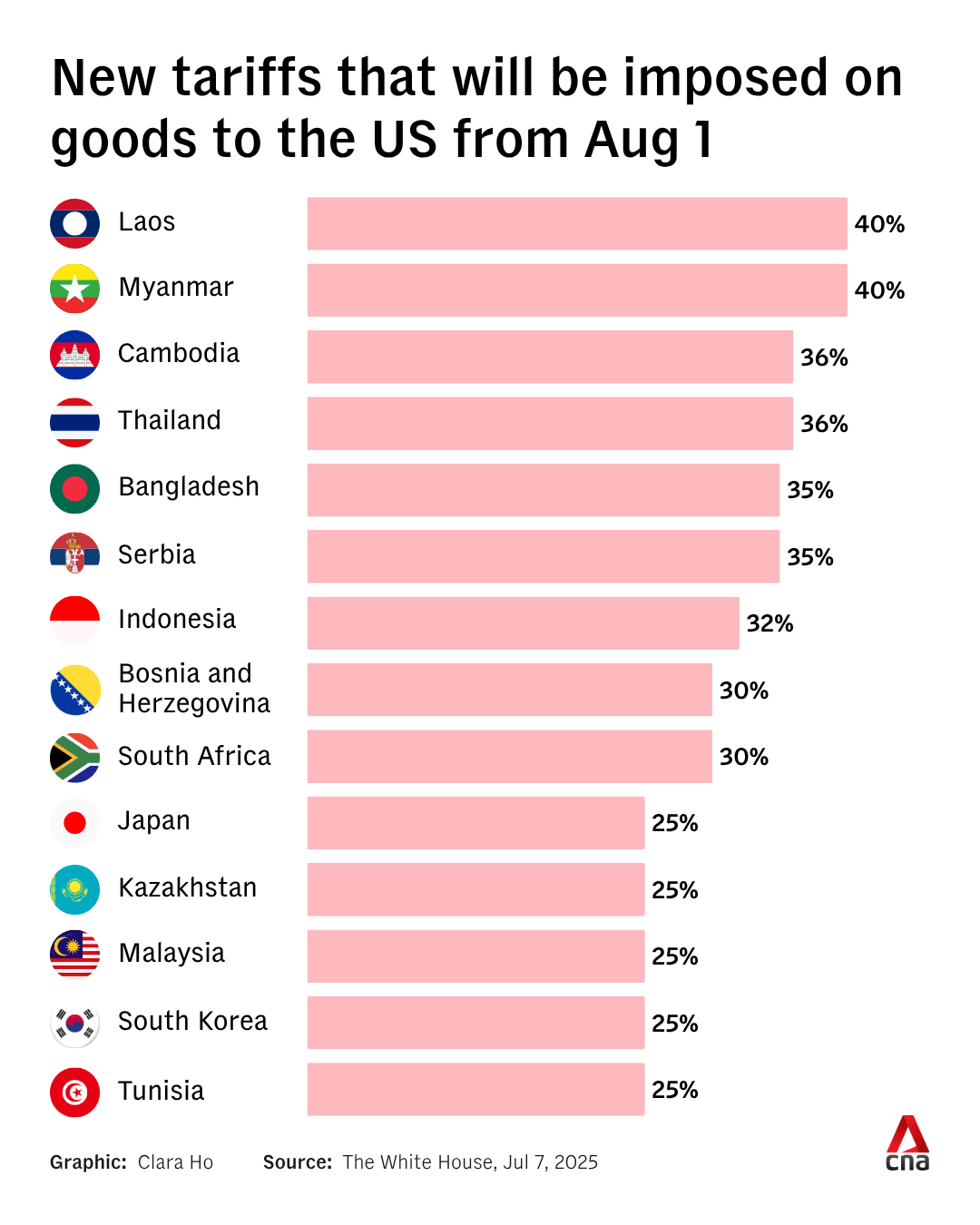
Asked why Malaysia was slapped with a higher tariff, Tengku Zafrul said “you have to ask” Greer instead.
“We have already asked, but he did not have an answer. Because this depends on the US president,” he said.
“For example, Japan has also asked (why their rate went up by) 1 percentage point. But we have to look at it in the context of negotiations. Because 1 percentage point is not a large figure. Our rate is still lower than neighbours like Thailand and Indonesia.”
Japan also faced an increase from 24 per cent to 25 per cent in the latest tariff announcements.
While Tengku Zafrul said negotiations with the US will continue as Malaysia’s 25 per cent tariff is not effective yet, he stressed that Putrajaya will not budge on matters of national interest or agree on a deal just for the sake of it.
“We cumulatively engaged with our US counterparts at least on 25 separate occasions. We negotiated in good faith with considerable give and take, while standing firm on crucial matters of national interest and sovereignty,” he said.
“There were specific red lines that we would not compromise on. Complex at times, and I must say, certainly demanding, the goal has remained clear: To secure our export market access, modernise our economy and safeguard Malaysian livelihoods for the long term.”
Tengku Zafrul said these red lines involve policies and laws - including government procurement policy - designed to protect Malaysia’s national interests.
“I can't say in detail. I mentioned about one on the digital trade. We have talked about our ability to impose digital tax - that's a red line,” he said, referring to a 6 per cent service tax on foreign digital service providers in Malaysia.
Tengku Zafrul said his ministry is also discussing with relevant agencies and ministries that “also have their red line”.
“There are also red lines on certain issues regarding certain medical and technical standards, which we feel may not be fair,” he said.
The discussions with relevant ministries involve gathering feedback and agreements on various matters, including industrial and agricultural products, non-tariff barriers, as well as digital trade.
“Based on our internal calculations, our market access offers for both industrial and agricultural products cover nearly all of US requests,” Tengku Zafrul said.
“We also had to achieve a high level of consensus on issues such as economic security, purchase of US-made products, and increasing investments in the US to help balance Malaysia-US trade,” he said.
Tengku Zafrul identified some “alleged non-tariff barriers” in the area of halal certification.
“Maybe when we talk about halal certification, we can look at ensuring that the halal standards that they (the US) have are at par with our standards,” he said.
“This is one of the red lines for them, because they want to export their agricultural products. Right now, we do not allow the (import) of beef and poultry from the US. And they are asking, ‘Why?’ So, there are sensitivities there.”
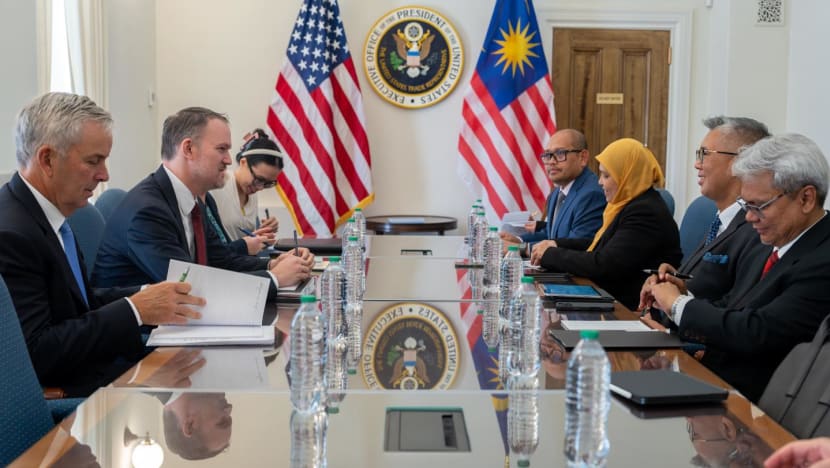
Ultimately, Malaysia has to “stand firm” on many issues, the minister said, noting that the US has accepted the reasoning for some of these issues.
Tengku Zafrul said his negotiating team is “quite confident” that small issues with the US could be resolved, though some bigger issues might need “diplomatic engagement”.
“To me, if you give me 50-50, I’m more than 50 per cent (leaning towards) concluding (negotiations). But the timeline is key, because at the end of the day, when you negotiate, the devil is in the details.”
While the Aug 1 deadline is approaching in a matter of weeks, the average time taken for Malaysia to conclude a bilateral free trade agreement is 18 months, he noted.
“Therefore, it takes time, and that's why you only see two countries so far (the United Kingdom and Vietnam) that can conclude in that kind of time frame,” he said.
“But having said that, I'm optimistic and I have confidence in my chief negotiator … and that my (US counterpart) will have the ability to understand some of the reasons why we can't move on certain red lines given the sensitivities that are peculiar to ASEAN or to Malaysia.”
When asked if ASEAN will adopt a more coordinated response against US tariffs, Tengku Zafrul said the regional bloc continues “to stand firm on principles of free trade and multilateralism”.
But each ASEAN member is negotiating bilaterally with the US as each has different issues to raise, he said, also noting the US’ preference for bilateral talks.
Viewfinder Global Affairs managing director Adib Zalkapli said Malaysia’s tariff hike was not an “ideal outcome for Malaysia or ASEAN as an organisation, but it’s an opportunity for the organisation to demonstrate its importance”.
“The tariff situation may speed up economic integration between the member states,” he told CNA.
Adib predicted that the US Liberation Day tariffs would remain in some form even after the Aug 1 deadline.
“It is unrealistic to expect a favourable outcome from the negotiations with the US,” he added.
“Practically, some of the US demands on trade imbalances are hard to meet, simply because of the complexity of the global supply chains. Politically liberalising the halal regulations is suicidal for any Malaysian government.”
Principal adviser for the Pacific Research Center of Malaysia and senior fellow at the Singapore Institute of International Affairs Oh Ei Sun said Malaysia’s rate hike was “perhaps predictable" given that it was “quite insistent” on some of the non-tariff barriers.
“For example, Malaysia practises extensive affirmative actions, which are repugnant to the Trump administration both ideologically and commercially,” he said.
Sharon Seah, senior fellow and coordinator at ISEAS - Yusof Ishak Institute’s ASEAN Studies Centre, believes the one percentage point hike on Malaysia and Japan is “arbitrary”.
“There is no rationale or reason behind it … so there is no need to read too much into it. In the bigger scheme of things, (one percentage point) is not significant when one is going from zero tariffs to over 20 per cent,” she said.
While Seah noted that many countries made their best efforts to negotiate with the US since Apr 2, when Trump first announced his Liberation Day tariffs, she noted that no ASEAN member states besides Vietnam managed to conclude a deal.
“The bottleneck is not on ASEAN member states’ side but rather on the US administration side, bearing in mind that DOGE actions have significantly reduced manpower in the different departments like Treasury, Commerce, USTR,” she said.
Seah was referring to the US’ so-called Department of Government Efficiency, a Trump 2.0 initiative tasked with maximising productivity and cutting excess regulations and spending.
“This arbitrary increase does not in any way reflect on Malaysia’s ASEAN chairmanship and should not be read as a signal of retribution on Malaysia’s foreign policy moves like attending BRICS,” she said.
The fact that Rubio cancelled trips to Japan and South Korea to attend the ASEAN foreign ministers’ meeting is a “good sign”, as it allows ASEAN counterparts to seek bilateral meetings with him, Seah said.
“I believe much of the conversations will centre around the tariffs. Rubio will have to convey this back to Washington,” she added.









